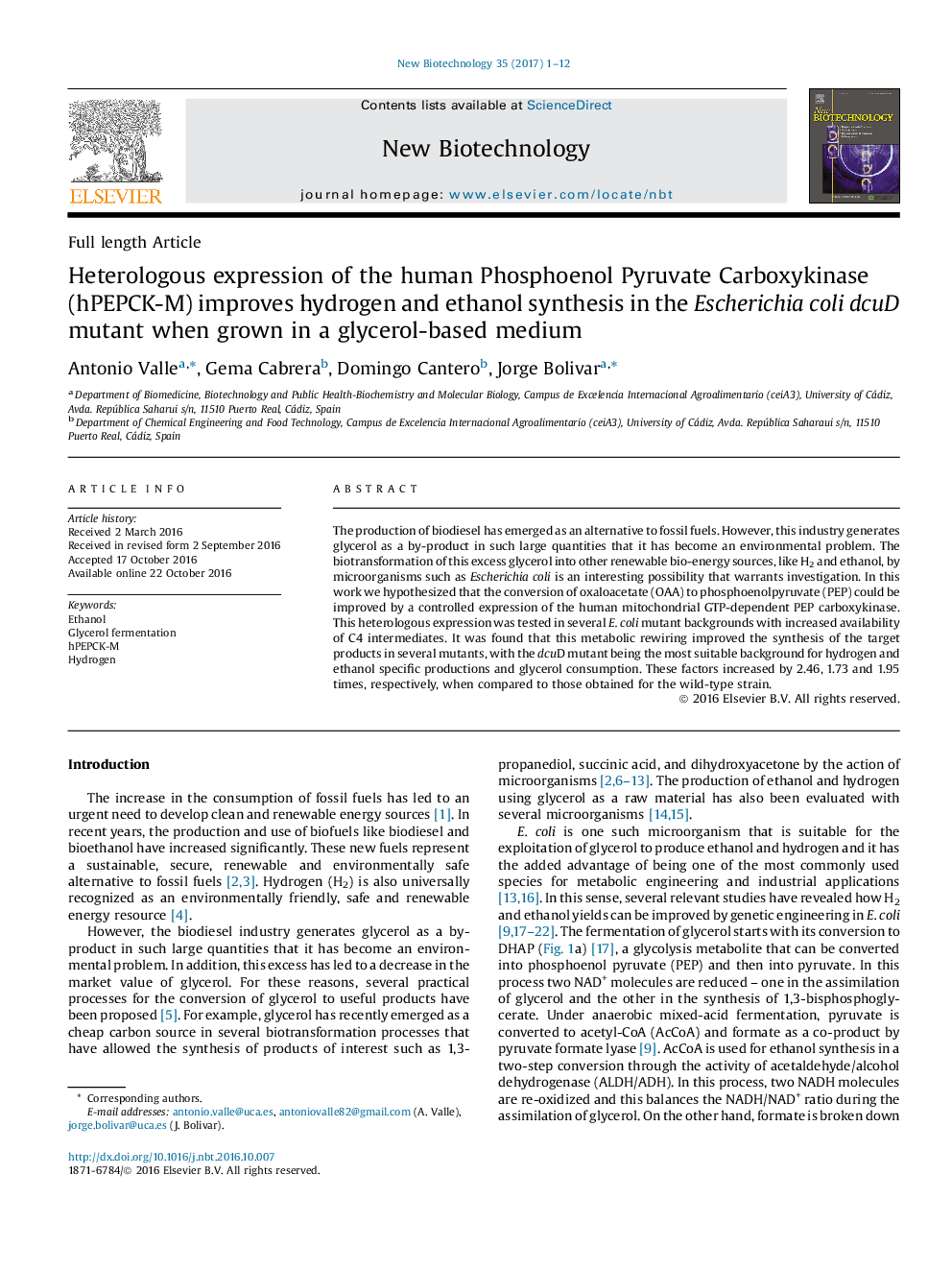| Article ID | Journal | Published Year | Pages | File Type |
|---|---|---|---|---|
| 4754962 | New Biotechnology | 2017 | 12 Pages |
Abstract
The production of biodiesel has emerged as an alternative to fossil fuels. However, this industry generates glycerol as a by-product in such large quantities that it has become an environmental problem. The biotransformation of this excess glycerol into other renewable bio-energy sources, like H2 and ethanol, by microorganisms such as Escherichia coli is an interesting possibility that warrants investigation. In this work we hypothesized that the conversion of oxaloacetate (OAA) to phosphoenolpyruvate (PEP) could be improved by a controlled expression of the human mitochondrial GTP-dependent PEP carboxykinase. This heterologous expression was tested in several E. coli mutant backgrounds with increased availability of C4 intermediates. It was found that this metabolic rewiring improved the synthesis of the target products in several mutants, with the dcuD mutant being the most suitable background for hydrogen and ethanol specific productions and glycerol consumption. These factors increased by 2.46, 1.73 and 1.95 times, respectively, when compared to those obtained for the wild-type strain.
Keywords
Related Topics
Physical Sciences and Engineering
Chemical Engineering
Bioengineering
Authors
Antonio Valle, Gema Cabrera, Domingo Cantero, Jorge Bolivar,
